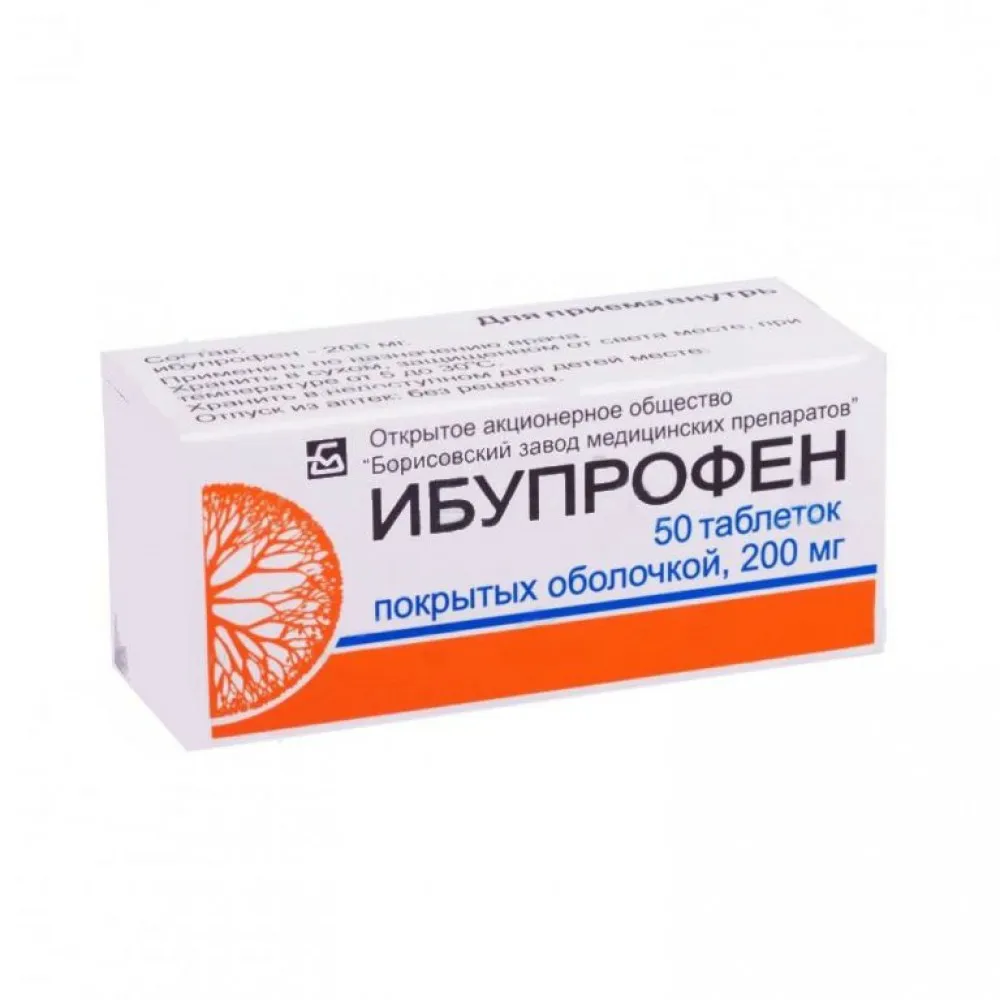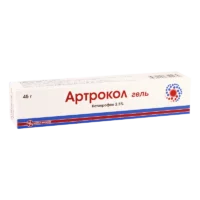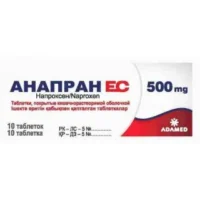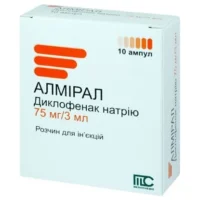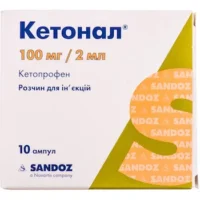Description
Ibuprofen Tablets 200 mg. №50
Ingredients:
Each tablet contains 200 mg of ibuprofen as the active ingredient.
Mechanism of Action:
Ibuprofen, a nonsteroidal anti-inflammatory drug (NSAID), exerts its pharmacological effects by inhibiting prostaglandin synthesis, thereby reducing pain and inflammation.
Pharmacological Properties:
Ibuprofen possesses analgesic, anti-inflammatory, and antipyretic properties.
Indications for Use:
Ibuprofen tablets are indicated for the symptomatic relief of mild to moderate pain, inflammation, and fever.
Contraindications:
Contraindications to ibuprofen use include known hypersensitivity to NSAIDs, history of peptic ulcers, renal insufficiency, and active gastrointestinal bleeding.
Side Effects:
Common adverse reactions to ibuprofen encompass gastrointestinal disturbances, renal impairment, and hypersensitivity responses. Severe side effects may encompass gastrointestinal ulceration and cardiovascular events.
Usage Instructions:
For adults, the recommended dosage ranges from 200 to 400 mg every 4-6 hours as needed. Tablets should be swallowed whole with a full glass of water, without crushing or chewing.
Benefits Compared to Analogues:
Ibuprofen stands out due to its well-documented efficacy in pain, inflammation, and fever management, coupled with a relatively favorable safety profile compared to certain other NSAIDs.
Suitable Patient Groups:
Ibuprofen is suitable for use in adults, adolescents, and children above a specified age under appropriate medical supervision. Caution is advised in the elderly and individuals with renal impairment.
Storage Conditions and Shelf Life:
Store ibuprofen tablets in a cool, dry place shielded from direct sunlight. Adhere to the expiration date on the packaging and refrain from using tablets beyond this date.
Packaging Description:
Ibuprofen tablets 200 mg are commonly presented in blister packs containing 50 tablets each, facilitating convenient dispensing and storage.
Clinical Evidence and Proven Effectiveness:
Ibuprofen’s efficacy has been extensively scrutinized in diverse clinical trials and real-world scenarios. Clinical studies affirm its effectiveness in managing pain and inflammation. Notably, a study in the Journal of Pain Research showcased ibuprofen’s ability to alleviate pain in osteoarthritis patients.

